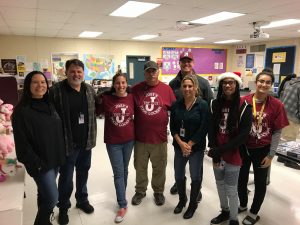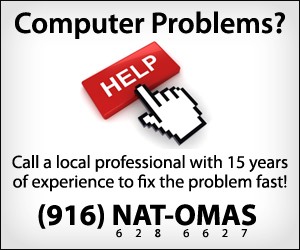By Aneesa Mahmood
Staff Writer | The Pacific Times
As the holidays approach there many families are in need due to COVID-19.
The Natomas Unified School District has a free food locker to help serve the community.
Joey’s Food Locker serves families from 3:30-5:30 p.m. every Friday. It is located at Natomas High School, 3301 Fong Ranch Road.
Anyone who needs food will be provided with food at Joey’s Food Locker. The amount of people in your family will determine how much food you are given.
Joey’s Food Locker not only helps families in need, but when school is session it also provides job training for young adults who with mental and physical disabilities.
Joey’s Food Locker is typically staffed by students in the adult transition program at Natomas High School but due to COVID -19 it is currently run by school staff Volunteers. Their work at the food locker helps teach independence skills. With schools closed due to COVID-19, teachers, school staff and community volunteers have helped keep Joey’s Food Locker running.
Natomas High teacher Joel Schwieger started Joey’s Food Locker in memory of his son Joey. Joey was born with autism and died at the age of 30.
Anyone though can donate food to the food locker which always needs basics like cereal, peanut butter, and bread.
Sarah Bard is an adult transition teacher at Natomas High and a volunteer for Joey’s Food Locker. Bard said that she has always enjoyed volunteering from a young age and her favorite thing about Joey’s Food Locker is that it is run by students.
Joey´s Food Locker has gone from providing food for 300 people a month to 1,350 a month since the pandemic began. Before COVID-19 Joey’s Food Locker was open once a month but now due to the pandemic it is open every week.
“Joey’s Food Locker is an amazing opportunity for our students. It allows our adult transition students to get real-life experiences on how to stock shelves, bad food, clean, organize, interact with people from the community, and so much more,” said Bard. “They are able to learn important skills that will help them in any job they decided to have in the future!”




Speak Your Mind
You must be logged in to post a comment.